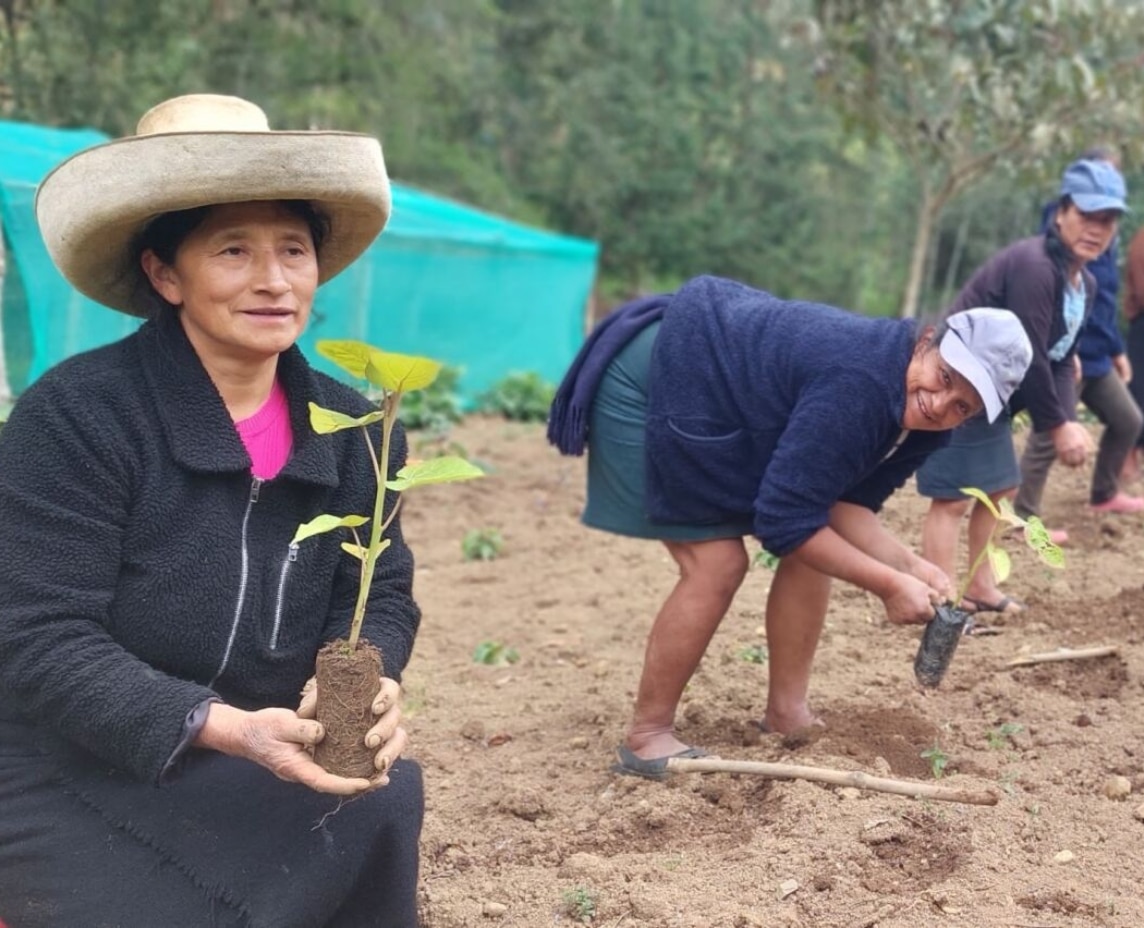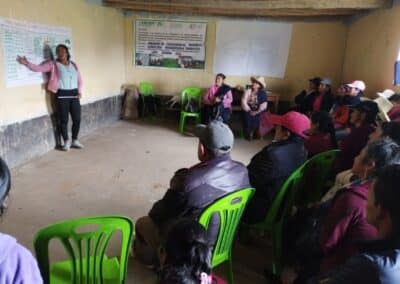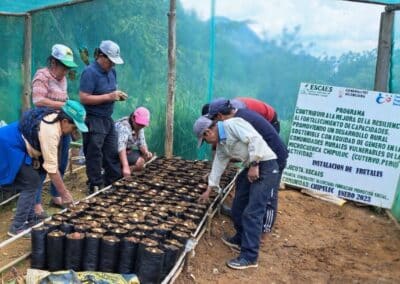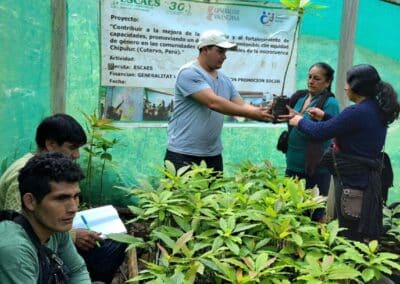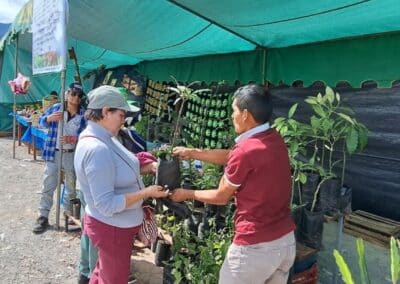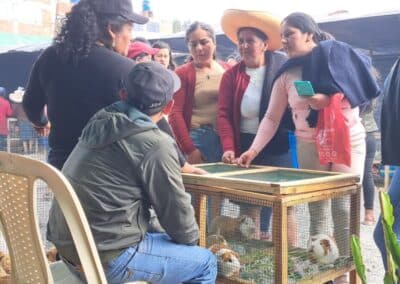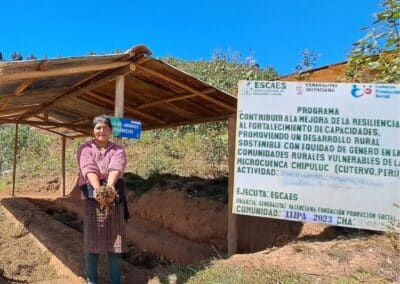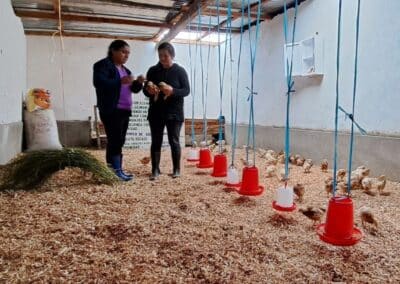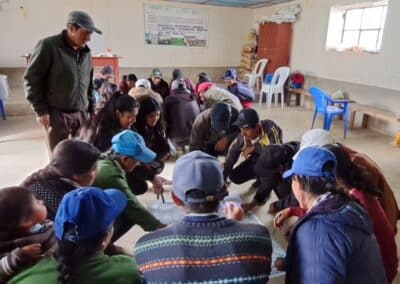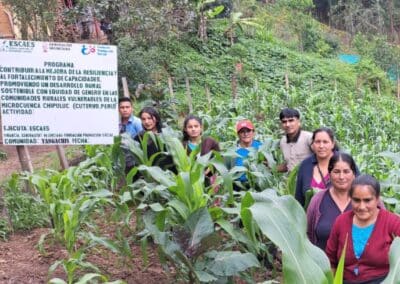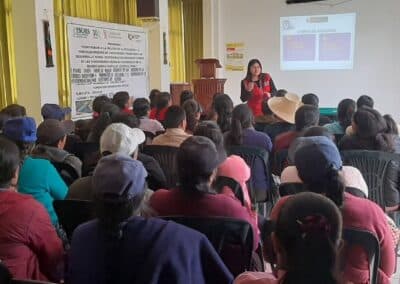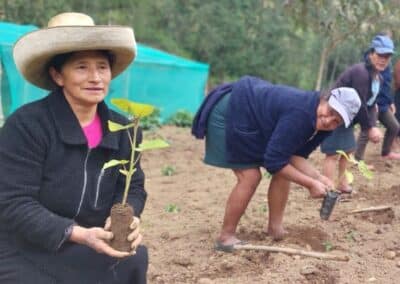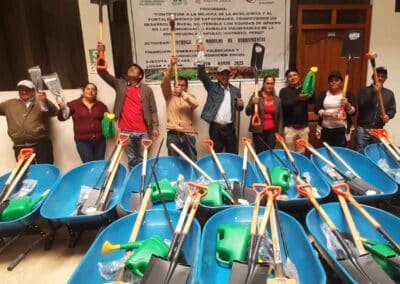In Cajamarca, Peru, significant progress has been made in the Project that we implemented in 10 vulnerable communities in the Chipuluc micro-basin to promote sustainable rural development and gender equity, and which is in its second year of execution. Improving healthy eating and strengthening the resilience of these communities, enhancing their capacities, is being possible thanks to the joint work with ESCAES and the financial support of the Regional Government of Valencia.
Increased food availability
In the field of food security, two mobile sprinkler irrigation systems have been installed in collaboration with the population and municipal authorities, benefiting agricultural production. In addition, families have been trained on the right to access to water, through two workshops, and the management of pressurized irrigation systems, with two other workshops, resulting in a significant improvement in agricultural production and a more efficient use of water resources
The introduction of 7 hectares of improved pastures for feeding guinea pigs on family plots has positively impacted household income and the economy, while the installation of modules for laying hens, led by 51 leading women producers, has strengthened the production and generated additional income opportunities.
Additionally, the participation of these communities in local, provincial and regional fairs and events has been encouraged to publicize and promote their agricultural products. This has contributed significantly to establishing commercial relationships at different levels, expanding market opportunities for products grown in the Chipuluc micro-basin.
It has also focused on long-term sustainability, developing strategies for communities to maintain and continue to improve their agricultural practices, thus ensuring a continued and sustainable impact in the region.
Sustainable management of natural resources
To improve the capacity of rural communities to manage their natural resources sustainably, improved stoves have been installed in the homes of some families in the micro-basin, with their collaboration. Likewise, an agro-conservation committee has been organized, made up of men and women, which has worked to conserve 20 hectares of soil with native forest species and has planned the production process of the species of each community.
Along these lines, it is also worth highlighting the development of an awareness program on adaptation and mitigation of climate change, as well as the construction of 100 solid waste management modules that are allowing the production of own and usable organic fertilizer on the plots of the participating communities.
One of the most notable achievements in this matter has to do with the installation of vermiculture modules for the production of worm humus. This advance, led by women, is being very significant in response to the unexpected rise in the price of fertilizers that is being suffered this year. Worm humus is a very viable economic and ecological alternative to guarantee food production without degrading the soil.
Right to food and promotion of equality
In order to strengthen the organizational, participatory and management capacities of communities to guarantee the right to food of the vulnerable population, two programs have been developed: one for training in management, social rights and public policies, and another for training in management of productive projects before municipal and subregional government bodies. The latter has had the participation of 50 men and women leaders and 30 authorities from the 10 participating communities.
In order to promote equal access for women to productive resources and income-generating opportunities, 10 Culture Circles have been implemented with 300 participants (20 women and 10 men in each). Likewise, forum panels have been held on the legal framework of women’s rights and their economic autonomy.
In the area of equality, an Advocacy Plan on public policies on gender and rights has also been prepared and disseminated, which has included the participation of peasant leaders (men and women), communal authorities and representatives of the different institutions. of the local Government.





